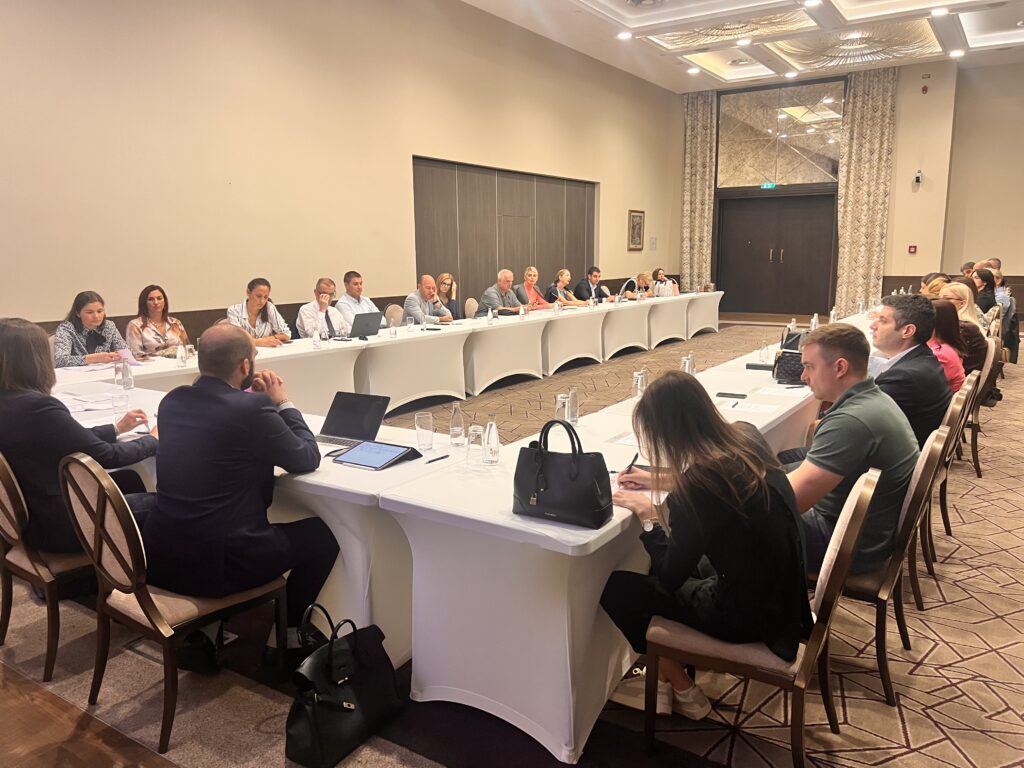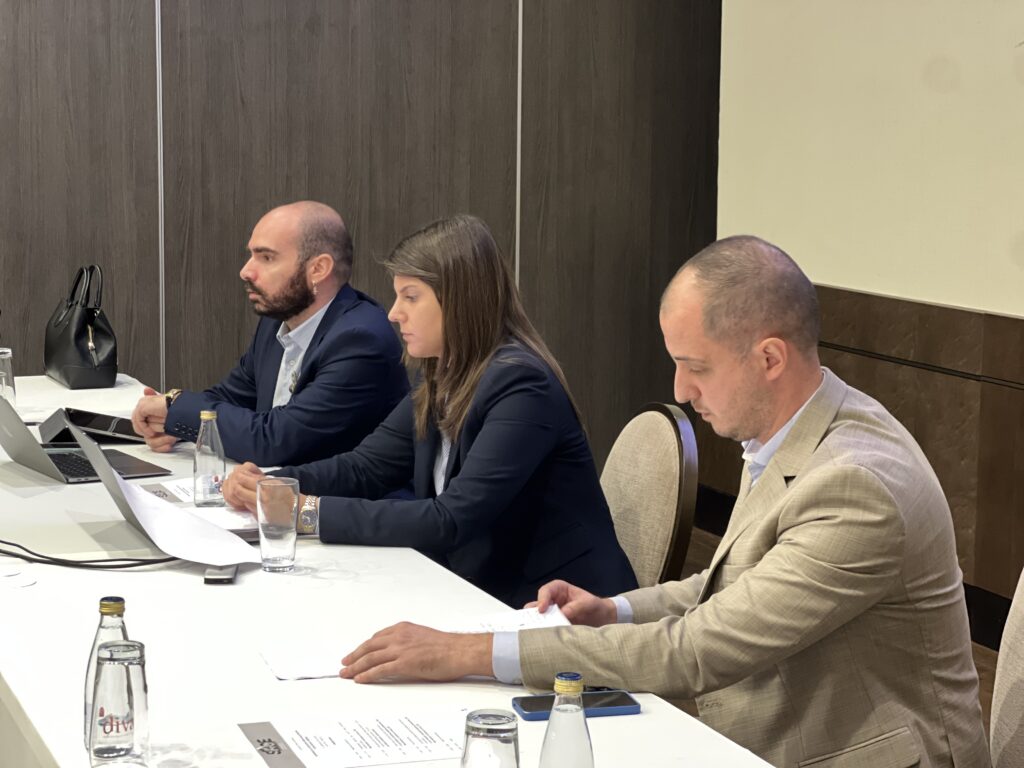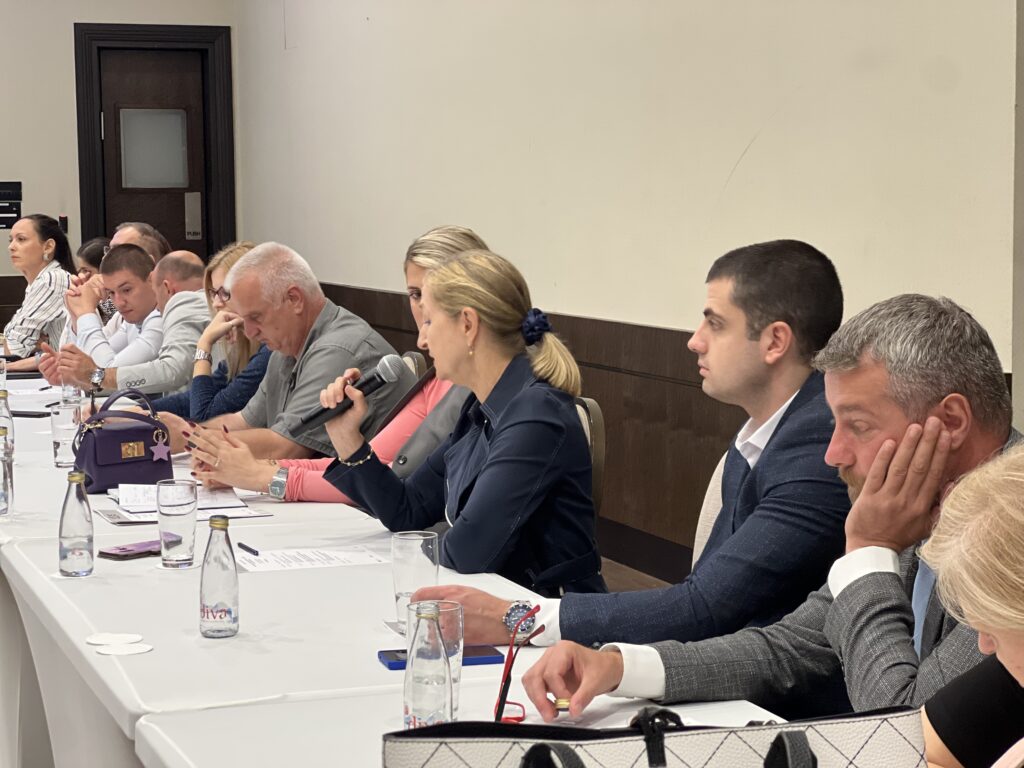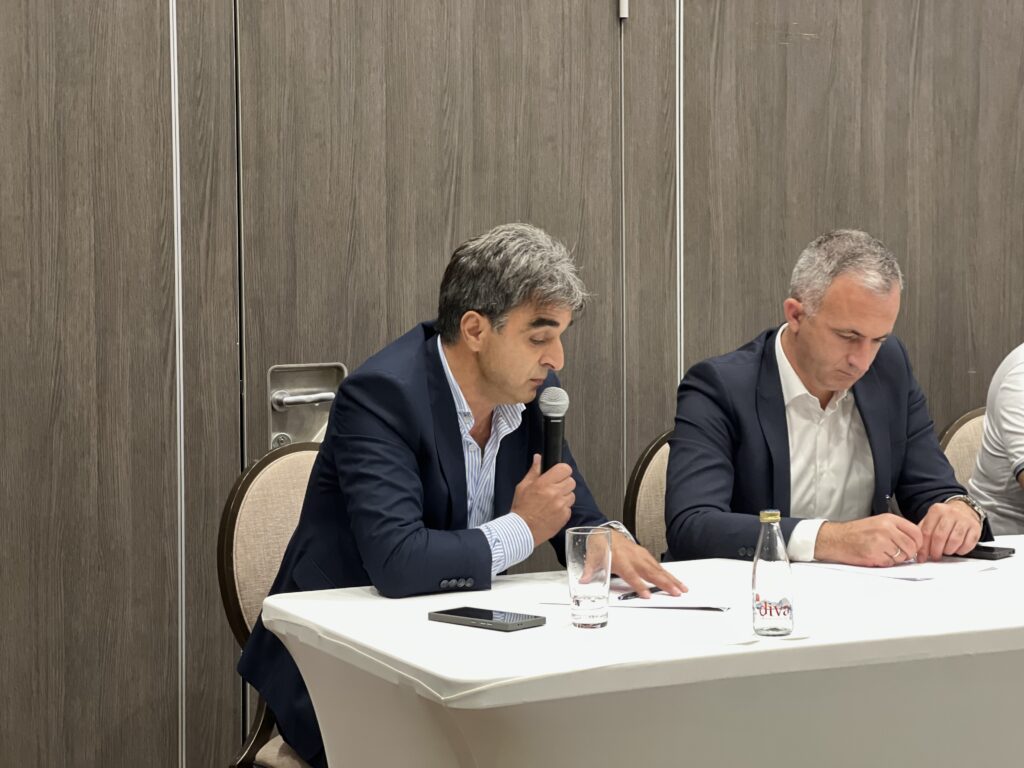An interdisciplinary approach, schools as safe communities, and family support are prerequisites for an effective system in addressing the challenge of juvenile delinquency. This was the conclusion of today’s cross-sectoral meeting “Coordination in Juvenile Justice Procedures – Bottlenecks and Solutions”, held within the project HEART: Support for the Empowerment and Resilience of Youth Today.

In the introductory part, CCE presented its analysis on the treatment of juveniles in criminal proceedings, along with the findings of two parallel surveys on perception of peer violence and juvenile delinquency – one among adult citizens of Montenegro and the other among high school students. Both reveal limited public trust in institutional mechanisms for child and youth protection.
During the meeting, participants emphasized the importance of strategic approach, psychotherapeutic support for all children and youth, clearer definitions of peer violence, the need for modernized curricula, quality training for security staff, and preventing the media from popularizing crime.
“This event is important because we are discussing potential solutions, within the existing legal framework, with those directly engaged in juvenile delinquency every day,” said Dr. Ivan Vukčević, Human Rights Programme Coordinator at CCE. He noted that educational measures often remain a formality instead of serving genuine resocialization, while the practical application of alternative sanctions faces numerous obstacles, such as a lack of trained staff, weak institutional capacities, and poor coordination. “The goal is to strengthen cooperation between the judiciary, social and educational institutions, municipalities, and public enterprises in providing community service for juveniles – and this will be one of our key focuses,” Vukčević underlined.

Milica Krivokapić from the Cetinje Centre for Social Work stressed that prevention is crucial in addressing peer violence and juvenile delinquency. “As a psychologist, I must stress that fundamental causes of deviant behaviour, in addition to dysfunctional families, is emotional illiteracy and lack of emotional intelligence. Instead of overwhelming children with information, we need to introduce subjects and programmes that teach them to recognize and express their own emotions, and not to divide others based on differences,” she said.
Highlighting the importance of a multi-sectoral approach, Milica Pušonjić from the “Savo Pejanović” Elementary School in Podgorica said: “We cannot assume that only professional associates are responsible and sufficiently trained to respond – everyone in the system must have the capacity to recognize and report such cases. We need more networking, a unified stance, and zero tolerance for violence and any inappropriate behavior.”
Nikola Latković from the “Lovćenski partizanski odred” Elementary School in Cetinje pointed out the need for greater support to families and schools. “It is essential to strengthen support not only for families and schools, but for society, by opening day-care centers in towns as important services for working with children and families. It is important to create an environment in which youth and children come first. Additionally, the public broadcaster should have dedicated channels with programs for children, based on new values and promoting socially responsible behavior,” Latković concluded.

“For the future of juvenile justice, it is crucial to strengthen interdepartmental cooperation, expand education, and establish specialized institutions to ensure full reintegration and resocialization of juveniles into society. For effective implementation of the law, we need to open specialized facilities, strengthen trained staff, and improve institutional coordination,” emphasized lawyer Lara Dedić.
Zdravko Rajović, judge of the Basic Court in Plav, said that reducing juvenile delinquency requires better coordination between institutions, as criticism alone does not bring change. “Unfortunately, juveniles are neglected, both in the educational system and in society at large, while media pressure further complicates the situation. That is why it is important to develop new educational programs and media content that encourage children and shape their values toward healthy and responsible behaviour,” he stressed.

The project “HEART: Support for the Empowerment and Resilience of Youth Today” is implemented by CCE in partnership with the Regional Academy for Democratic Development from Novi Sad, with financial support from the European Union and co-financing by the Ministry of Public Administration.
Jovana Radulović, Project Assistant
